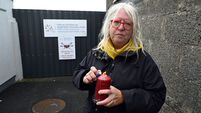Common sleeping pills may increase risk of death
The higher the dose, the greater the risk of dying, while people on higher doses had an increased risk of cancer, experts found.
A wide range of drugs was analysed for the study of more than 10,500 people taking sleeping pills. They included drugs such as benzodiazepines (including temazepam and diazepam), non-benzodiazepines (including zolpidem, zopiclone and zaleplon), barbiturates and sedative antihistamines.
Insomnia tends to be more common in women and is more likely to affect people as they get older.
The research, from experts at the Jackson Hole Centre for Preventive Medicine in Wyoming and the Scripps Clinic Viterbi Family Sleep Centre in California, found that people prescribed sleeping pills were 4.6 times more likely to die during a two-and-a-half year period compared with those not on the drugs.
Those taking the lowest doses — four to 18 pills a year — had a 3.6 times higher risk of dying compared to non-users.
The higher the dose, the greater the risk, with those taking 18 to 132 pills a year having a 4.4 times higher risk of dying, and people on more than 132 pills a year having a 5.3 times higher chance of death.
The group of people taking the highest doses each year accounted for 93% of all prescriptions in the study. This group were also 35% more likely to develop a major cancer.
The researchers, writing in the journal BMJ Open, concluded: “As predicted, patients prescribed any hypnotic had substantially elevated hazards of dying compared to those prescribed no hypnotics.”
The experts said their results held true even when other factors, such as whether a person had an illness such as heart disease, were taken into account.












